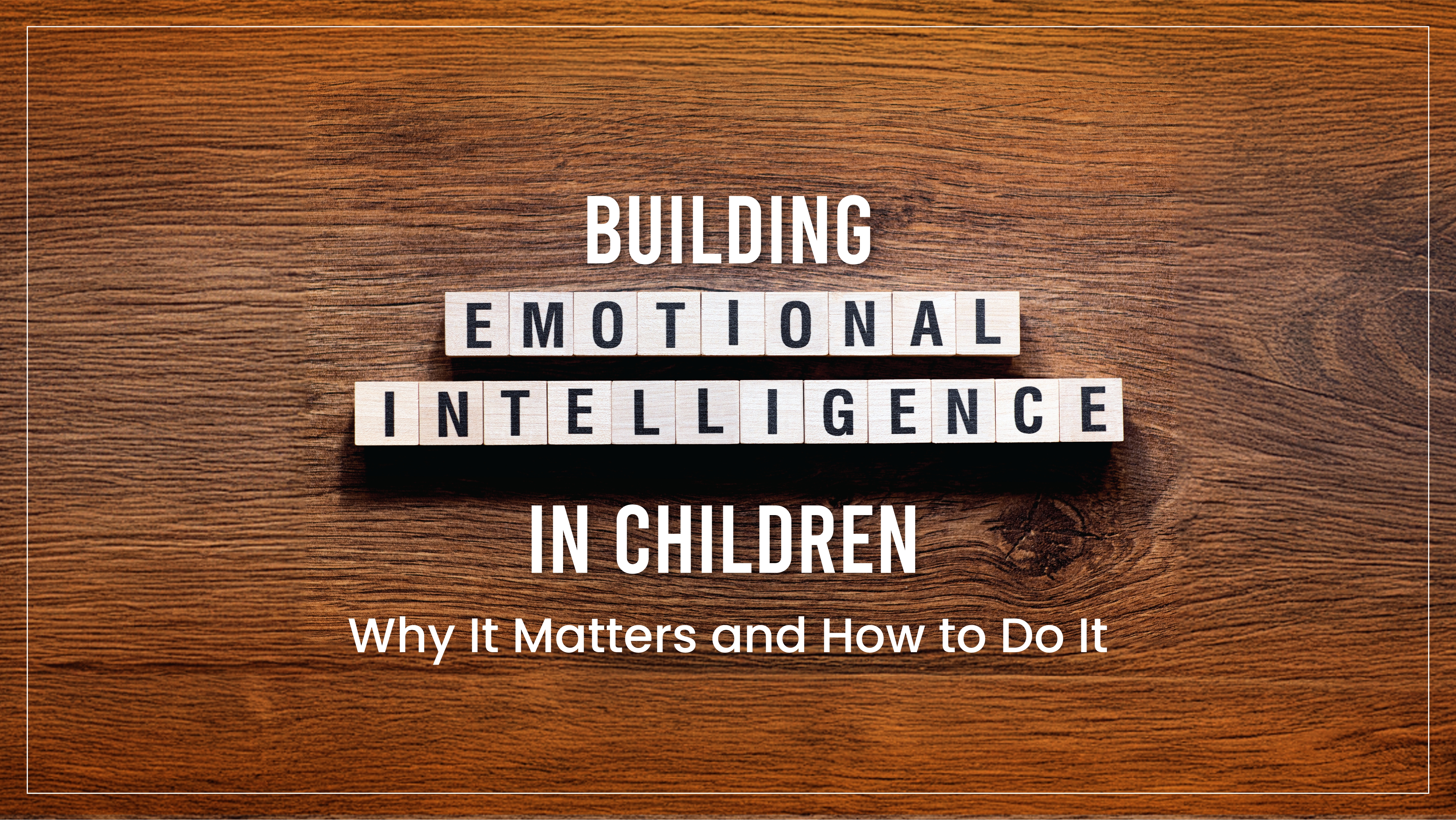Emotional intelligence in children is a vital aspect of their overall development. It equips them to understand, express, and manage their emotions effectively, fostering better interpersonal relationships and resilience in facing challenges. As society becomes more complex, the importance of emotional intelligence cannot be overstated. Children who develop this skill set are more likely to succeed academically, socially, and personally.
Why Emotional Intelligence Matters
Emotional intelligence is the foundation of a child’s ability to navigate the social world successfully. It helps them understand their feelings as well as the emotions of others, promoting empathy and effective communication. This, in turn, reduces the likelihood of conflicts and enhances cooperation and teamwork among peers. The importance of emotional intelligence lies in its ability to help children manage stress, build self-confidence, and make responsible decisions.
Research shows that children with high emotional intelligence tend to perform better in school, have healthier relationships, and possess a stronger sense of well-being. It also serves as a protective factor against mental health issues such as anxiety and depression. By focusing on building emotional intelligence, we enable children to grow into well-rounded individuals who can face life’s challenges with resilience and grace.
How to Build Emotional Intelligence in Children
1. Encourage Emotional Expression – One of the first steps in building emotional intelligence in children is encouraging them to express their feelings openly and appropriately. Parents and teachers should create a safe environment where children feel comfortable sharing their emotions. Simple practices like naming emotions, discussing feelings after events, and using storytelling to explore different emotional scenarios can significantly enhance a child’s emotional vocabulary.
2. Model Emotional Regulation – Children learn a lot by observing adults around them. Therefore, it’s crucial for parents and educators to model healthy emotional regulation. Demonstrating how to stay calm in stressful situations, using positive language, and practising mindfulness can teach children valuable strategies to manage their emotions. This observational learning is a powerful tool in building emotional intelligence in children.
3. Teach Empathy – Empathy is a core component of emotional intelligence. Teaching children to recognise and understand others’ emotions helps them develop empathy. Activities such as role-playing, reading stories with diverse characters, and discussing various perspectives can nurture this skill. When children learn to see the world from others’ viewpoints, they become more compassionate and considerate.
4. Encourage Problem-Solving and Conflict Resolution – Helping children develop problem-solving and conflict resolution skills is essential in building emotional intelligence. Encouraging them to think through possible solutions to problems, discuss the consequences of their actions, and resolve conflicts amicably fosters critical thinking and emotional resilience. By guiding children to approach problems calmly and constructively, we empower them to handle challenging situations effectively.
5. Promote Positive Self-Talk – Teaching children to use positive self-talk can significantly influence their emotional well-being. Encouraging them to replace negative thoughts with positive affirmations builds self-esteem and confidence. This practice not only enhances their emotional intelligence but also equips them with the tools to handle failures and setbacks.
6. Use Supportive Tools and Resources – Incorporating activities like mindfulness, yoga, and social-emotional learning programs can be highly beneficial in building emotional intelligence. Schools and parents can utilise various resources, including books, games, and apps designed to promote emotional learning. Engaging children in such activities helps them develop self-awareness, emotional regulation, and social skills.
Conclusion
The importance of emotional intelligence in children is profound. It not only supports their academic success but also enhances their overall well-being. By focusing on building emotional intelligence through strategies like encouraging emotional expression, modelling emotional regulation, teaching empathy, and promoting positive self-talk, we can help children develop into emotionally and socially competent individuals. At Narayana, we help students become emotionally, mentally, and physically strong through various supports such as sports, Disha, and Yoga Veekshan to help them achieve their full potential because, at Narayana, your dreams are our dreams.


Stay connected, stay informed, and thrive with Narayana Educational Institutions!
